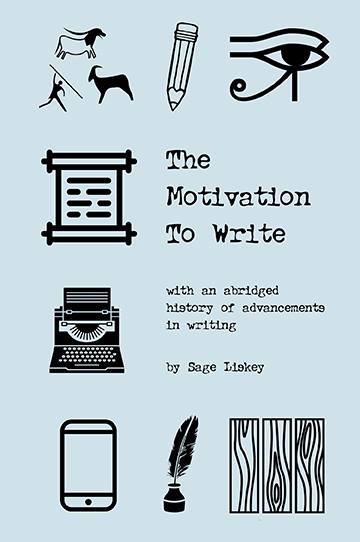 You lay down after a long day and sift into a slumber, but now a new day has just begun–the day within your dreams. In that dream day you find yourself in all sorts of strange and oddly familiar lands with strange and oddly familiar creatures who say all sorts of strange and oddly familiar things. When these images and feelings go well, they make sleep all the more restful, but when the nightmares come, rest is interrupted and unwholesome. These worlds of sleeping and waking are not separate; the feelings from a good dream or a bad dream carry into your waking hours, and experiences from your waking hours influence the contents of your dreams. Dreams can provide deep insights and healing from trauma, but may also bring stress and agony. For most people this seemingly happens at random, but there are ways of changing the general mood and content of dreams, as well as remembering dreams better. Let's begin with fighting off nightmares. Nightmares are often caused by underlying sources of stress within our waking hours. Begin by removing the easiest of these including horror films, world news media, and conflict-driven media. Consider what is actually important in your life and creates fulfillment and meaning. Remember that anything you experience has the potential to stay within your memories forever, so be selective with what your mind takes in. When possible, choose uplifting and positive over negative and downgrading. Remove yourself from perpetually stressful environments, and enhance your environments with images, art, plants, and lighting you find pleasing. Deal with unresolved conflicts, preferably with nonviolent communication. If stress and anxiety are consistent in your life, learn mindfulness meditation and find ways of accepting yourself and the present situation. Learning to have an abundance mentality will help by transforming the negative into opportunities for growth and healing. Seek therapy and work through sources of stress that linger from the past. This all is a lifelong process and goes much deeper than dealing with nightmares; it deals with becoming a conscientious human being and cultivating resilience to many sources of depression. For a more in-depth look at cultivating happiness and coping with depression in your waking hours, check out the downloads page for a free mental wellness guide. Easier and quicker to do is cultivating dreams. You dream every night, but you may not remember the series of happenings at all. One method to promote dream memory is waking up several times throughout the night and catching yourself fresh in the middle of a dream. This may lead to a restless night, but if you do wake up often, be sure to use a soft light over a bright one to prevent influencing your melatonin (sleep hormone) levels. Better is keeping a dream journal next to your bed and writing down any little bits of dreams you can remember, even just the general feelings. A lot of remembering dreams is the intention of remembering them and keeping the mind clear of other mental baggage when waking up. Before going to bed, tell yourself several times “I want to remember my dreams!” Keep this intention when you wake up and the dreams should come back. Sleeping in a new environment, especially nature, or viewing something artistic helps me dream as well. Certain herbs also influence the frequency of dreams. Smoking mugwort or drinking mugwort tea helps, while using marijuana and some other sedatives makes remembering dreams harder. See this list for more dream promoting herbs. Some people believe that putting herbs underneath your pillow helps too. As mentioned with nightmares, what you consume consciously manifests within your dreams. For instance, because I played video games as a child and later explored various theories of what happens after death, I rarely ever wake up from dying in my dreams anymore. Instead I restart the dream and know how to proceed without dying the second time through. If you want more interesting and meaningful dreams, consume more interesting and meaningful portions of reality through books, friends, media, etc. You can use intention to influence the contents of your dreams as well. Tell yourself what you want to dream about, or pose a question to your dreams. This may take a little while, but eventually a connection will be made between the conscious and subconscious areas of your mind. Developing a connection will also help you cultivate control over aspects of your dreams, or in other words, lucid dream. Lucid dreaming provides new levels of mental exploration and the opportunity to transform a bad dream into a good one. Being chased by evil-doers? Just realize your inherent super powers and stop them in their tracks! All dreams, even nightmares, are significant, especially if you spend time considering why those specific images and events appeared. Guides on the meaning of different images within dreams can be fun, but I don't hold much credibility in these compilations. Preferably decipher the meaning for yourself on paper or with friends. You know the most about your past, present, and future, so start making those intricate connections between the conscious and subconscious planes! Happy dreaming~
1 Comment
|
About Me
Hi! My name is Sage Liskey, the founder of the Rad Cat Press. I grew up seeing a lot of the disturbing, toxic, and unhealthy sides of American culture, and I wanted to do something to change it. Since 2010 I have been writing books and zines (booklets) focused around uplifting lives and reimagining society, with a primary focus in mental health and empowerment. I believe a better world is possible, so I hope you feel inspired and a little more fulfilled from what you find here. Read on about my mission.
Subscribe to my Patreon here for lots of great perks including e-books of all my work, discounts, member's-only content, access to my digital library, and much more!
My Books and Zines
Instagram
Upcoming Events
Categories
All
Archives
August 2023
|
|
© 2022 -- Sage Liskey. All rights reserved
RadCatPress@Gmail.com |











 RSS Feed
RSS Feed